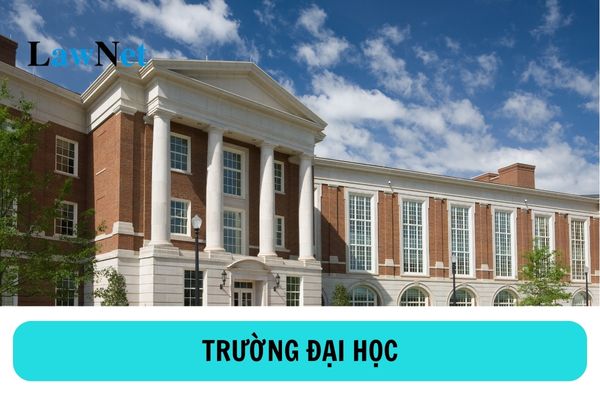Vietnam: According to the legal regulations, are universities juridical persons?
According to the legal regulations, are universities in Vietnam juridical persons?
Under Clause 1, Article 7 of the Law on Higher Education 2012 as amended by Clause 4, Article 1 of the Law on Amendments to Law on Higher Education 2018, the provisions are as follows:
Higher education institutions
1. Higher education institutions are juridical persons, including universities, parent universities and other types of higher education institutions defined by law.
National universities and regional universities are parent universities responsible for achievement of strategic national and regional development objectives.
2. Types of higher education institutions:
a) Public higher education institutions invested, maintained and represented by the State as the owner;
b) Private higher education institutions invested and maintained domestic or foreign investors.
A non-profit higher education institution is one in which the investor declare that the institution does not run for profit as written in the decision to permit its establishment or conversion; the investor will not withdraw capital or receive dividends; the annual accumulated profit shall be considered non-distributable property and will be used as reinvestment in such institution.
Only conversion from a private higher education institution to a non-profit private higher education institution is permitted.
3. All types of higher education institutions are equal before law.
...
Thus, a university is a higher education institution and therefore has legal personality.
 According to the legal regulations, are universities in Vietnam juridical persons? (Image from the Internet)
According to the legal regulations, are universities in Vietnam juridical persons? (Image from the Internet)
What is the organizational structure of a university in Vietnam?
Under Article 14 of the Law on Higher Education 2012 as amended by Clause 8, Article 1 of the Law on Amendments to Law on Higher Education 2018, the organizational structure of a university in Vietnam is as follows:
- The organizational structure of a university includes:
+ The university council or academy council (hereinafter referred to as “school council");
+ The university principal or academy director (hereinafter referred to as “principal”); the vice-principals or vice-directors (hereinafter referred to as “vice-principals”);
+ The science and training council; other councils (if any);
+ Faculties, dedicated rooms, library, science and technology organization, other organizations serving training activities;
+ Schools, campuses, research institutes, service facilities, enterprises, business establishments and other units (if any) necessary for development of the university.
- The specific organizational structure or a university, relationship and level of autonomy of its affiliated units and internal units shall be specified in the university’s internal rules and regulations.
What are the duties and powers of a university in Vietnam?
According to the provisions of Article 28 of the Law on Higher Education 2012 with phrases annulled by Point c, Clause 2, Article 77 of the Law on Vocational Education 2014 and Clause 2, Article 2 of the Law on Amendments to Law on Higher Education 2018, the duties and powers of a university are as follows:
- Formulating the university development plans and strategies;
- Deploying the science, technology and training activities, international cooperation, assuring the education quality;
- Developing the training programs towards the determined target; assuring the connection among the training programs and levels.
- Organizing the mechanism, recruitment, management and improvement of the teaching staff, the management staff and other employees.
- Managing the students; assuring the lawful rights and interests of the lecturers, management staff, other employees and students; allocating budget for the implementation of social policies on subjects of social policies, subjects in ethnic areas, areas with poor socio-economic conditions and the subjects learning special profession satisfying the workforce demand for socio-economic development; assuring the pedagogic environment.
- Actively assessing the training quality and subject to the education quality inspections.
- Using land and facilities allocated or leased out by the State; enjoying tax exemption and reduction as prescribed by law.
- Mobilizing, managing and using the resources; building and enhancing the facilities, investing in equipment.
- Cooperating with domestic and foreign economic, educational, cultural, sports, medical, scientific research organizations
- Implement the regulations on information and reports, subject to the inspections from the Ministry of Education and Training, relevant Ministries, sectors and provincial People’s Committees where the higher education institutions are situated or organize training activities as prescribed.
- Other duties and authority as prescribed by law provisions.
What are the duties and powers of a foreign-invested university in Vietnam?
Under Article 31 of the Law on Higher Education 2012, the duties and powers of a foreign-invested university are as follows:
- Building and achieving the objectives, carrying out the training programs, scientific research; building the teaching staff, facilities, equipment and teaching materials; assuring the quality and carrying out higher education quality inspections; organizing the training activities, awarding qualifications and certificates as prescribed by law.
- Organizing and operating under the decisions on approving the establishment, the training activities.
- Publicly offering guarantee of the training quality, disclosing the resources and finance
- Subject to the State management of education of the Ministry of Education and Training.
Periodically reporting the operation and making explanations at the request from the Ministry of Education and Training, relevant Ministries, sectors and provincial People’s Committees where the foreign-capitalized higher education institutions are situated.
- Assuring the lawful rights and interests of the students, lecturers and other employees, including the early termination of operation.
- Observing the Vietnam’s law and traditions.
- Having their the lawful rights and interests protected by the State as prescribed by Vietnam’s law provisions and the International Agreements to which the Socialist Republic of Vietnam is a signatory.
- Other duties and authority as prescribed by law provisions.

